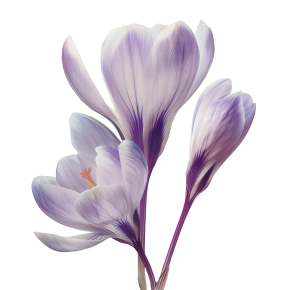
Walker, Alice
Alice Walker was born in 1944 in Georgia, USA. Her father was a sharecropper, growing crops for the landowner in exchange for a percentage of what he grew. Her family included eight children; the Walkers struggled financially and in order to supplement the family income, Walker’s mother also worked as a maid and a seamstress. Walker was blinded in one eye and left scarred after her brother accidentally shot her with a BB gun. Being self-conscious of her injury, Walker began to isolate herself, spending her time reading, writing and studying.Walker started school at the age of four, which was very unusual at the time. When a white plantation owner told Walker’s mother that black people had ‘no need for education’, her mother responded: ‘You might have some black children somewhere, but they don't live in this house. Don’t you ever come around here again talking about how my children don’t need to learn how to read and write.’ Walker attended a segregated high school and graduated with a full scholarship to attend college in Atlanta for having the highest marks in her year. She was offered a further scholarship to study in New York, spending a year studying in Africa, and graduated in 1965 despite having become pregnant in her senior year and choosing to have an abortion, becoming depressed and suicidal as a result. Her first published poetry collection, Once (1968), is based on this difficult time in her life. You can watch Alice Walker discuss her views on feminism, abortion and her experience as an ageing women in this International Women’s Day interview from the BBC: Feminist author Alice Walker on women, abortion and ageing - BBC News
During her time at college in Atlanta, Walker met Martin Luther King Jr, who she says was influential in her decision to return to the South after graduating in New York, where she took a role with the National Association for the Advancement of Colored People before becoming a writer-in-residence at Jackson State University, Mississippi in 1968, then at Tougaloo College in 1970, where her first novel, The Third Life of Grange Copeland, was published. Walker used a setting she knew well for her novel: a family of sharecroppers in rural Georgia. The murder of a woman by her husband in the novel was based on a real-life incident from the town in which Walker was raised. Walker herself explains how difficult it was to write a novel about violence within a black community: ‘I had to look at, and name, and speak up about violence among black people in the black community at the same time that black people (and some whites) including me and my family were enduring massive psychological and physical violence from white supremacists in the southern states.’ Walker’s activism can be seen in all of her writing.
Arguably her most famous work, The Color Purple (1982), deals with racist white culture as well as the patriarchal black culture through the story of a young black woman. Walker states: ‘The most common way people give up their power is by thinking they don’t have any’, and, through her protagonist, Celie, Walker proves that power doesn’t have to be given or taken, rather it comes from within. The Color Purple won the Pulitzer Prize for Fiction in 1983, making Walker the first black woman to have won the prize. The novel is not without its controversies, however. It has been on the American Library Association’s list of the top banned and challenged books in the USA a number of times, making the top ten in 2007 and 2009, and it is 17th on the list of most frequently challenged or banned books. Regardless, over five million copies of the text have been sold, and it was listed on the BBC’s Most Influential Novels in 2019. In 1985 it was adapted into a film, directed by Steven Spielberg and starring Whoopi Goldberg and Oprah Winfrey. It has also been adapted as a musical, and a film adaptation of the musical is reported to be planned.
To this day, Walker is a passionate activist, saying, ‘Activism is my rent for living on the planet’. In 1983 she coined the term ‘womanism’, defining it as ‘womanist is to feminist as purple is to lavender’ and ‘(a womanist) Loves music. Loves dance. Loves the moon. Loves the Spirit. Loves love and food and roundness. Loves struggle. Loves the Folk. Loves herself. Regardless’. Essentially, Walker used the phrase to highlight the difference between ‘white feminism’ and all that it means to be a woman of colour. You can read more about ‘womanism’ here: Womanism - Sociology of Gender - iResearchNet
Alice Walker’s writing career includes poetry, novels, essays, children’s books, short stories and non-fiction. She continues as an activist and writer today. Visit her website to read more about the causes she is highlighting: Alice Walker | The Official Website for American Novelist & Poet
Photo credit: Virginia DeBol – Alice Walker: Reading and talking about "Why War is Never a Good Idea" and "There's a Flower at the End of My Nose Smelling Me"
© ZigZag Education 2026: content may be used by students for educational use if this page is referenced.
Show / hide details
| 9th February 1944 |
Born
|
|
| 1952 |
Alice Walker became blind in one eye
|
|
| 1965 |
Graduated from Sarah Lawrence College, New York
|
|
| 1967 |
Married Melvyn Roseman Leventhal
|
|
| 1968 |
Moved to Mississippi and took a role with the National Association for the Advancement of Colored People
|
|
| 1969 |
Walker and Leventhal become parents to Rebecca Walker
|
|
| 1970 |
The Third Life of Grange Copeland, Walker’s first novel, published
|
|
| 1982 |
The Color Purple published
|
|
| 1983 |
The Color Purple won the Pulitzer Prize for Fiction and The National Book Award for Fiction
|
|
| 2003 |
Alice Walker was arrested at an anti-war protest outside the White House
|
|
| 2008 |
Alice Walker wrote to newly elected US President, Barack Obama
|
|
| 2013 |
Alice Walker: Beauty in Truth aired on the BBC, and on PBS a year later
|
|
| 2021 |
Alice Walker’s latest children’s book, Sweet People Are Everywhere, published |
Acknowledgements
Image credit: Photo of Alice Walker courtesy of Virginia DeBolt, Creative Commons Attribution-Share Alike 2.0 Generic




